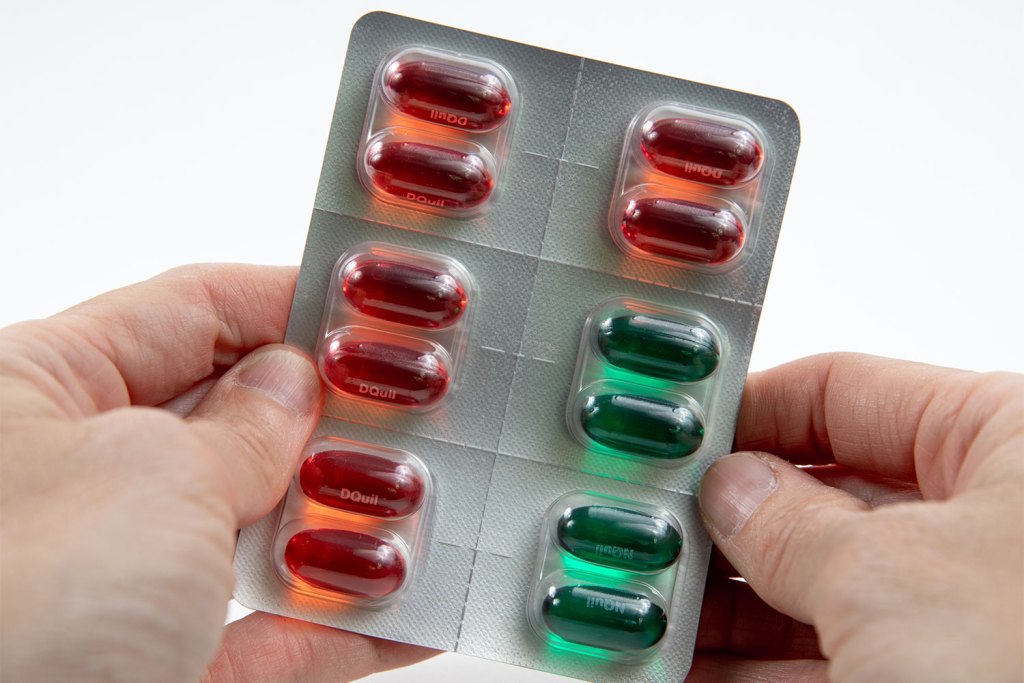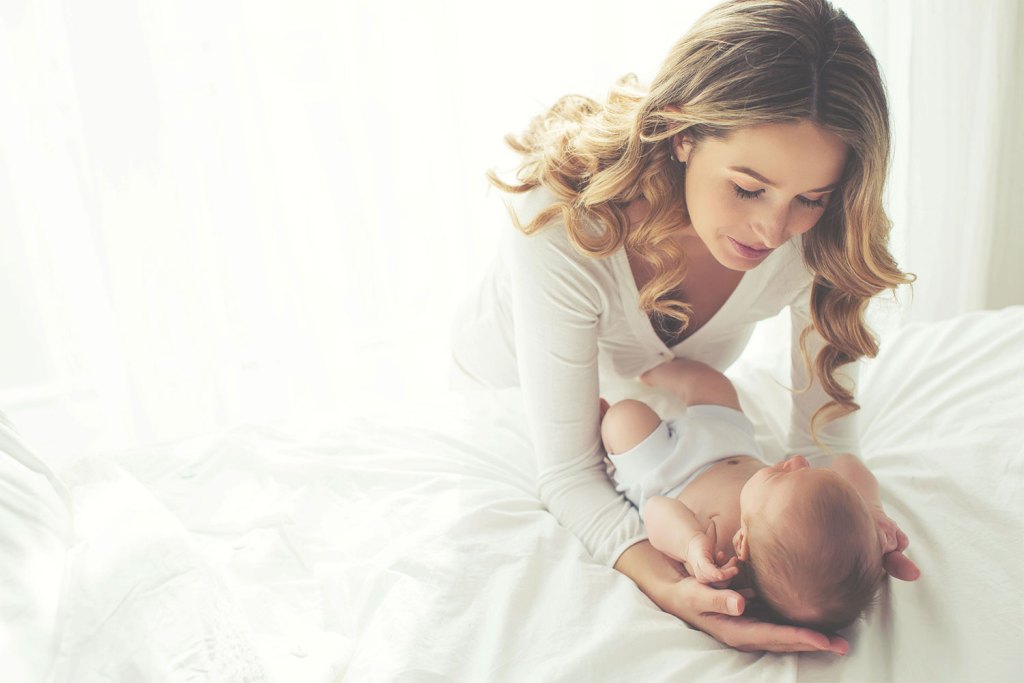
Coming down with a cold and feeling under the weather is never convenient, but it’s especially irritating when you have a nursing baby on your hands. All you want to do is take care of them, but you barely have the energy to take care of yourself. It’s also pretty challenging to take care of a child when you can’t stop coughing and sneezing leaving you to wonder if you can safely take DayQuil while breastfeeding.
Under normal circumstances, many of us gravitate towards nondrowsy cold medicine like DayQuil. But is it safe to take while you’re breastfeeding? We’ll take a look at the pros and cons of taking DayQuil and what effects it may have on the baby.

Pros of taking DayQuil while nursing
There are many apparent advantages of taking DayQuil while nursing.
Won’t make you drowsy
First off, it’s a non-drowsy cold and flu medicine, which means you can take it during the day without fear that you’ll start falling asleep while watching over your baby.
You’ll feel better
Perhaps the most evident benefit of taking DayQuil while nursing is that you’ll feel better almost immediately. DayQuil has the power to reduce the congestion in your sinuses. It can eliminate cold-related headaches and a sore throat, too. If your muscles are achy or you have a fever, DayQuil can help with those symptoms, too. All in all, DayQuil can make sick moms feel more equipped to take care of their babies while under the weather.

Cons of taking DayQuil while nursing
Still, like most products, there are cons to DayQuil and using it while nursing. It affects people differently, so even though it helps many moms, there’s no real guarantee it’ll help you. There are also some significant side effects and interactions to watch out for.
Side effects
Depending on how your body works, you could experience some side effects of using DayQuil. For example, you might feel dizzy or nervous. Even though it’s marketed as a non-drowsy option, there’s a chance it could still make you sleepy, which isn’t ideal when you’re caring for a baby who’s breastfeeding.
Interactions
If you drink alcohol (more than three drinks a day), DayQuil can lead to liver damage. You also won’t be able to take acetaminophen, a common over-the-counter painkiller, while also taking DayQuil. Doing this can also hurt your liver even if you don’t drink. If you have a mood disorder, depression, or anxiety and you take monoamine oxidase inhibitors (MAOIs), then you won’t be able to take DayQuil.

How DayQuil might affect your baby
When exploring how using DayQuil while nursing might affect your little one, you first need to evaluate the ingredients. The active ingredients are what could pose a threat to your baby. We’ll go through the components of DayQuil so you can see exactly what you’re putting into your body and how it could affect your breastfeeding baby.
Acetaminophen
If you’ve never heard of acetaminophen, it’s essentially the same thing as Tylenol. It’s both a fever and pain reducer, so it can help if you have a temperature over 100.4° F. and if you have muscle aches or a headache. When looking at the DayQuil LiquiCaps, there are about 325 milligrams of acetaminophen in each one. Luckily, the American Academy of Pediatrics (AAP) has approved the use of acetaminophen in nursing mothers, and most doctors say it’s safe to take.
Dextromethorphan HBr
This is another active ingredient in DayQuil. Dextromethorphan is a cough suppressant, and there are about 10 milligrams in DayQuil LiquiCaps. There have been studies that take a look at dextromethorphan’s effect on breastfeeding women, and the conclusion is that it’s safe for both your baby and you.
Phenylephrine HCl
Phenylephrine — a nasal decongestant — is also present in DayQuil LiquiCaps. There are about 5 milligrams of that active ingredient. Although some nasal decongestants (like pseudoephedrine) lower the supply of milk in your breast, phenylephrine won’t do that. It’s also considered safe for you and your baby.

Will you get your baby sick?
Nursing parents can be understandably worried about transmitting their illness to their baby, but with proper precautions, they should be able to continue to nurse safely. The CDC recommends you continue to breastfeed through colds, diarrhea, and even if you have COVID-19 as long as you take proper precautions.
In the case of the coronavirus, they suggest wearing a mask while breastfeeding, washing hands frequently, and cleaning and sanitizing all breast pumps or bottles used. Your breast milk contains “antibodies and other factors that may provide immunological protection to infants,” suggesting that if you feel well enough to breastfeed, you should continue to do so.

The bottom line
The bottom line? It’s up to you and your doctor to decide what’s best for you and your baby while you’re nursing with a cold. It’s always a good idea to speak to your general practitioner before you start any medication while breastfeeding — including over-the-counter cold and flu medicine. While DayQuil is generally safe to take while breastfeeding, its bedtime twin, NyQuil, isn’t. That’s because there’s high alcohol content, so it’s not as safe for your baby.
Make sure you take medicine right after your baby is done nursing. This will help limit your little one’s exposure to the active ingredients in DayQuil. You can also use home remedies like tea, throat lozenges, sprays, and cough drops if you’re uncomfortable taking cold medicine while nursing. Whenever you’re at the doctor’s and they prescribe medication, always mention that you’re breastfeeding, just in case.
Editors' Recommendations
- Flying while pregnant? This is what you need to know
- Is it safe to have a cocktail while breastfeeding or should you pump and dump?
- Can you get a manicure while pregnant? These are the factors to consider
- Baby play mat ins and outs: What age you should get one and the benefits for baby’s development
- What age do babies crawl and when you should worry if they’re not


